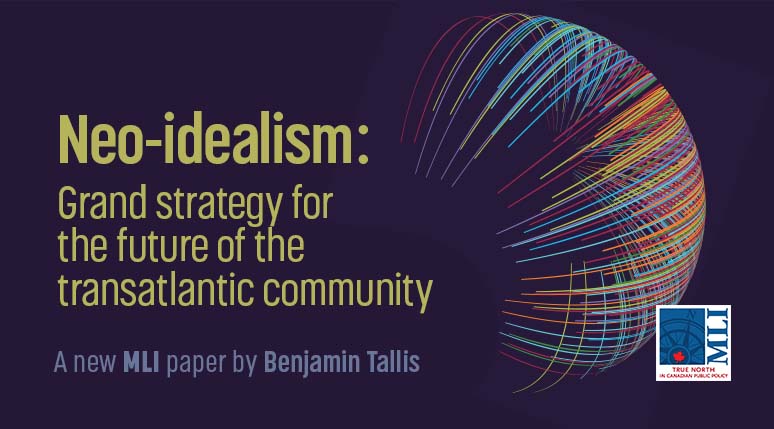By Benjamin Tallis
July 18, 2024
Executive Summary
It is time for a new strategic approach to defend and renew our societies and the free world – a “neo-idealism” for the transatlantic community.
The transatlantic community (broadly speaking, the member states of NATO and the EU), is at an inflection point and faces major tests of its prowess and value: Russia’s ongoing war against Ukraine and overt enmity toward liberal democracies, intensifying strategic competition with China, the emergence of new global and regional powers such as India and the growth of the BRICS grouping organization (Brazil, Russia, India, China, and South Africa), the retreat of the free-trade based, neo-liberal model of globalization in the face of growing tensions between the sources of our security and the sources of our prosperity, and the need to master both technological and ecological mega-transitions.
Despite the urgency and scale of the threats, and the good examples provided by some members of the transatlantic community, we have not yet collectively gotten our strategic act together. Key players, including Germany and Canada, suffer from significant strategic deficits that have prevented them from properly recognising and responding to the emerging geopolitical situation. Those two countries are also strategically drifting from the course set by the United States – the most important ally for both countries – as well as from that being charted by France, the United Kingdom, and allies across Northern, Central, and Eastern Europe.
The strategy that the transatlantic community needs must provide a framework for dealing with the multiple threats we face and for radically overhauling our approach to geopolitics and international ordering – the way we try to shape the world and interactions between states. Crucially, that strategy needs to be backed up domestically, thereby ensuring that we have resilient societies that act not only as solid foundations for our strategic action but also as strategic players in their own right, acting in concert with government and business.
I argue that the transatlantic community, therefore, requires a “grand strategy” to guide coherent rather than contradictory action across different policy fields and that not only addresses the threats we face but also tackles the weaknesses in our societies, fixing the cracks in which our enemies work and through which they have fomented discontent within our populations. Moreover, this grand strategy needs to harness and amplify our strengths, which will allow us to seize existing opportunities and create new ones for better strategic action that serves both our values and interests.
In this paper I propose eight precepts or pillars of just such a strategy, which provide a major development of neo-idealism as a practical approach to (geo)politics and (geo)economics. This is an approach that can not only defend but renew our free societies and help spread their values. The first pillar, value primacy, reflects neo-idealism’s morally based approach to geopolitics; it conceives of core liberal democratic values as ideals to strive for – and sees these values as our most fundamental interests.
From this value primacy follows the need for: military readiness, effective internationalism, geo-economic realism, inclusive dynamism, ecological modernization, democratic futurism, and societal cohesion. By combining these tenets, neo-idealism offers an approach that addresses both internal and external threats to our democracies and allows us to marshal the various sources of our power. Neo-idealism provides a way to ensure that the transatlantic community has the means to defend itself in order to survive, but also the moral core and the hope of progress we need to thrive.
I argue that by putting our shared values at its heart, neo-idealism also provides a rallying point for transatlantic allies to work better together and harness what is perhaps our greatest latent strength: the “team power” of democracies working together, in complementary ways, for shared goals. And neo-idealism also shows how to make better allies of politicians, government, business, and civil society, backed up by our populations who, in the ways outlined here, will be able to more tangibly feel the material as well as moral superiority of our system.
This elaboration of neo-idealism thus aims to address the strategic deficit that is hindering the transatlantic community at a crucial time. It provides a framework to generalize good examples that have been shown by several allies in response to the threats we face, but which need more comprehensive linking to other policy areas and backup from allies. Transforming this neo-idealist vision into reality also requires significant strategic capacitybuilding work in and between the members of the transatlantic community. This paper should thus be seen as an invitation for the kind of discussions that can begin building this strategic capacity – and developing better strategic culture – in a serious way.
Read the full paper here:







